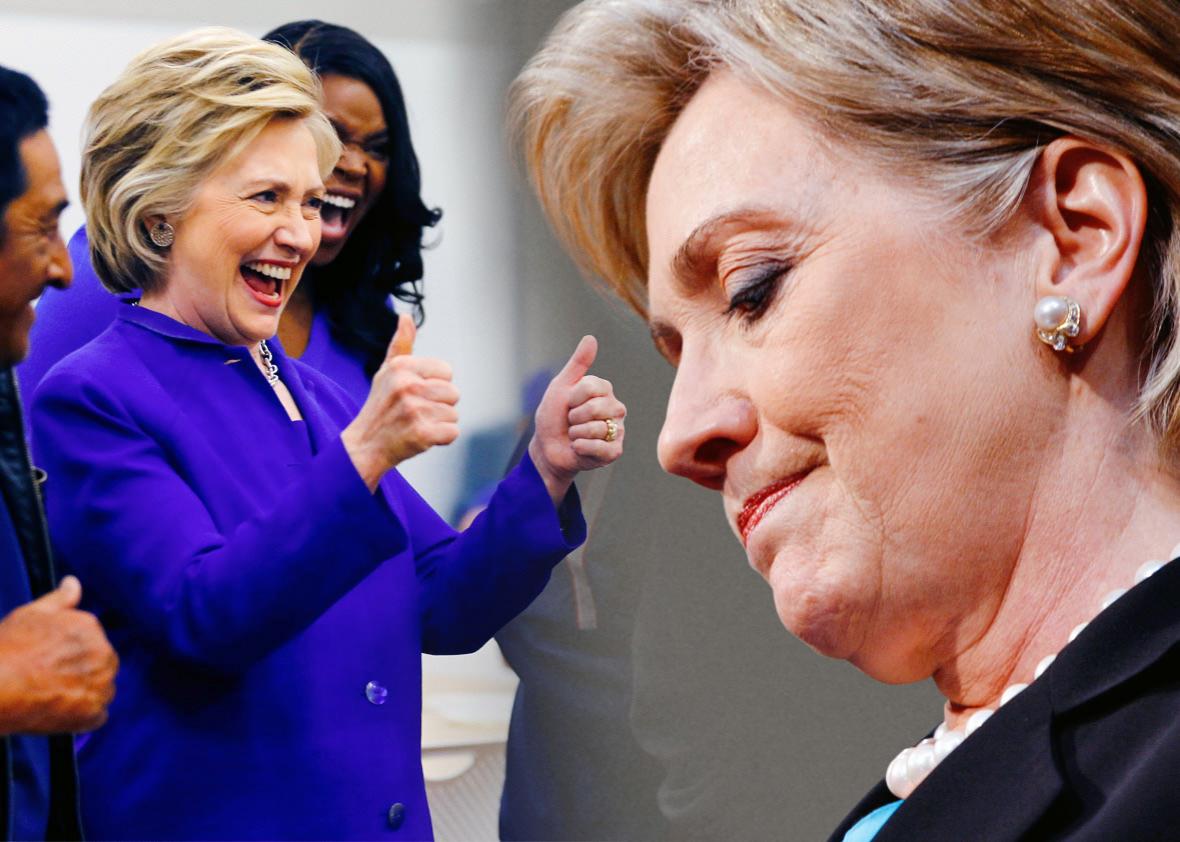When several female writers at Slate launched the in-house XX Factor blog during the 2008 presidential campaign, we weren’t entirely certain what we were doing or why. It was an idea that originated when several of us at the magazine were feeling that we should be covering this historic campaign in new ways; I was one of them. XX Factor was a group blog intended to be a place for all the amazing women writing at the magazine—on great days, Emily Yoffe and KJ Dell’Antonia and Emily Bazelon and Rachael Larimore would all be posting at once. The idea was to create a space within Slate to talk to one another about politics and gender and journalism. We actually took some heat at the start—I distinctly recall some snark from Gawker—for having created “Pink Slate” instead of just seamlessly adding more female voices to the magazine. Some of us were ambivalent, having worked incredibly hard to get more women on the masthead at Slate and having earned credibility in fields ranging from foreign policy to politics to law, about being chased back to what in the old days would have been called the “women’s pages” of a newspaper. I myself wasn’t sure if I wanted to write about miscarriages or pregnancy or gender or politics. It felt a bit like we were choosing to build our own fuzzy diaspora.
But the astonishing prospect of a Hillary Clinton presidency—and then the prospect of a Sarah Palin vice presidency—just gave us so much to talk about. I think we were interested in a slightly different mode of discourse than what the rest of Slate circa-2008 was up to: Rather than producing entire perfectly argued pieces, we wanted to float ideas and be persuaded and to try to persuade in short posts. What’s more, so many of us were so slyly thrilled about the possibility of President Hillary Clinton that we could have written up brief thoughts about her all day. We couldn’t quite believe that national policy debates were finally raging about reproductive choice and equal pay. “Women’s issues” had suddenly become “issues,” and it was a heady, strange conversation. To be sure, that we were consigning these discussions about “women’s issues” to female writers on Slate’s women’s blog was part of the perceived problem. But we quickly learned about the massive number of male readers who were thinking about these issues along with us at XX Factor; it felt like any effort to put these ideas into public discourse was a big net win for women.
I miss the feverish enthusiasm we felt in 2008 about the prospect of a changed view of women in public life. We don’t see much of that in this election cycle—Hillary fever is reserved for secret Facebook groups and the second bottle of wine after dinner. The rancor of Clinton’s battle against Bernie Sanders—a battle still raging as the DNC kicks off this week—means that being excited about Clinton is as fraught as ever for Democrats. Add to that the toxic gender discourse surrounding the Trump nomination, and a lot of women have chosen to be quiet. This is not their moment for feminist exuberance. To be for Hillary is to invite abuse from both sides. The rank sewage to be found in comments sections and Twitter feeds has led to a much quieter celebration of Clinton’s success by women who still want to celebrate. The brutality of the hate directed at Clinton makes it easier to just stop talking. The whole election has become a bag of rocks we lug around; if ever there were an era of unalloyed gender pride and good-feeling, this isn’t it.
Right now the world of journalists is divided between those who believe that the rise of Trumpism is an apocalyptic threat to essential American values—tolerance, freedom, gender progress—and the journalists who don’t believe that. One lesson of the past week is that, while journalists and public intellectuals may have roundly loathed the RNC carnival, our opinions matter less and less each day. But as social media and media itself become more virulently ugly places for conversations about gender, the retreat to secret Facebook pages and that second bottle of wine feels like a rational solution, although not one that is good for the polity. It’s not great as an omen either. Each retreat from the public sphere leaves more room for the haters. I suspect most women are as horrified at what happened to Leslie Jones as I am, but the battle has been wearying, and many women feel that they are losing. What once looked like a one-way halting but steady progress toward a future of gender acceptance now feels like bloodsport for which very few women journalists have much appetite.
I wish we were having a different debate around gender and politics and journalism right now. I wish we could be jazzed and curious and thrilled about a historic shift, instead of feeling afraid of the scariest commenter on the thread and whether he really means what he’s saying. I think a lot of women in journalism feel variations on this sentiment every day, and they may feel alone in this. The point of 2008-era XX Factor in its original, conversational group-blog form was that we—all of the women writing at Slate—really weren’t alone. The joy of it was that we never felt alone in the first instance. We folded that early version of the blog because we thought it was too late for that kind of gendered, cautious, questioning conversation at Slate. We were wrong. It was possibly just too early.
